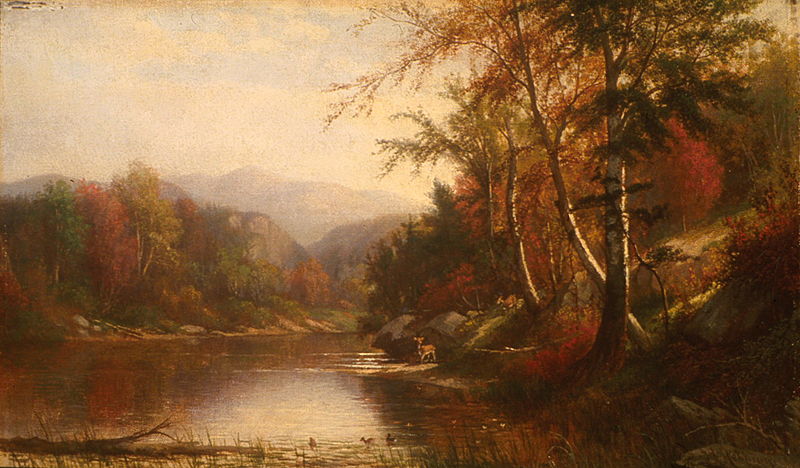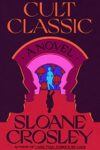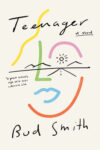A friend of mine writes fiction I deem strong and steady, it goes for the heart and gut but also channels Tobias Woolf and Tim O’Brien and unpretentiously tries to update Raymond Carver and Richard Russo and Richard Yates and Richard Ford and Richard Bausch. His writing seems born from the belly of Great American Richards, the hunting trips with fathers described by Great American Richards, the stoic iceberg stuff specialized in by Great American Richards, the tip suggesting the rest unseen, the crafty magic trick Richards perfected, nothing too mystical about it, the pineal gland numbed by drink and sorrow. It’s anti-ecstatic work, attentive, crafty, at peace with traditional narrative pathways, rising arc and realization, a knitting of sentences constructed so a sensitive reader might pull a sentence and feel the story unravel as a string is pulled in the reader’s heart, these Richards always hunting after the hearts of readers. My writer friend is a hunter of reader hearts, out there in the existential bush, the fictional savannah where elevated expectations meet dashed hopes, affably unprepared and bumbling but someone one roots for, armed with a quiver of tears and a light, flexible bow like that used by some elfin warrior in a story a Richard would never write. Everything about these Richards hunting reader hearts is unlike big-game archers decked in the latest hunting gear with infrared night goggles and laser rangefinder tucked away in a neoprene camouflage print case and a bow like a handheld suspension bridge complete with a high-tension pulley system, the muscles in the backs of these archers attuned to their enthusiasm for shooting arrows at circles on wood or paper or imaginary circles over the vitals of a black bear, a moose, a proud buck traipsing across Canadian terrain, and then from six hundred yards upon tension and release the buck or bear falls and the archer knives out the heart and squeezes it into an iron cup and drinks it as it steams in the brisk autumn air. Great American Richards comparatively prance through woods, not quite at one with nature but natural in the sense that they’re stumbling men, getting away from life and wife and everything in pursuit, the game becomes the hunter, the goal of the hunt a symbolic parallel, the buck representing something feral in the Richard’s nature, something that must be conquered but something the Richard also wants to let be, thus there’s a conflict, that old Faulknerian nugget about the heart in conflict with itself upon which Richards thrive, feast on, their bread and butter any sort of inner conflict related to man against nature, man against society, man against expectations/conventions, and so with nothing more than a light flexible bow, something handed down from a grandfather who carved it with the help of a Native American friend, or a grandfather who took it off a dead Native American found lying by the side of a remote footpath when the grandfather was lost in the woods and the bow saved his life, with this very same bow the Richard otherwise almost always at a loss these days feels preternaturally empowered, he hunts and like a house cat fixated on a fly batting against a screen door, the Richard returns to his one true hunting self, the deep masculine entity that had for thousands of years been the only sort of self his predecessors knew, for once he can access it, that original force, the subcutaneous musculature of the hunter focused on the hunt, the slow careful steps and silent precise movements, a pantomime except now it’s real, the hand reaches over a shoulder and extracts an arrow and feeds the groove at its feathered end into the gut-wire that spans the ends of the bow, one arm extends and the other pulls back and at that moment Richards are primed to overcome all thoughts about fathers, all thoughts about mothers, all thoughts about wives and children, all thoughts about anything as though primed and ready to strike is the essential way of being, as though thought about anything is an affliction, all stories wiped of thoughts, cleansed of ideas, the only thoughts and ideas present in the stories are suggestions of thoughts and ideas. Stories are not the home of ideas, they say, the mind not at home in the world these stories relate, these Richards tell stories that go after the heart and the gut, the primary organ and the lower organs not the highest organ, at most something in the language triggers a tingle at the top of the spine, a frisson, something where brain meets body will without warning go on high alert, but that’s the extent of the brain work, an enemy in the work of these Richards, the central nervous system something to overcome with drink and the hunt, a car pressed to its limits on the highway at night, speeding no one knows where, headlights cast an ominous strobe across feathery pines leaning in along the shoulderless road, and although my writer friend is not a Richard he seems to me a practitioner of the noble strand of American Literary Fiction known as minimalist stories about sad sack men who momentarily sense their former vigor most likely forever lost. At a time in my reading life I wasn’t able to deal with Richard stories one would see in Ploughshares and academic literary journals (usually a state name followed by the word “review”), collected each year in the Best American Short Stories, where such stories went to die after they raised their humble and honorable heads for a minute in The New Yorker. At first when I was younger there was no way such stories were for me, I felt pressure to write such stories even if they had nothing to do with how I’d been raised or how I’d lived my life. I wasn’t an alcoholic, I wasn’t divorced, I didn’t hunt, I’d done well enough in school (other than math and science classes), I’d played some sports and did pretty well, I’d had some luck with girls and later with women, and since I wasn’t an alcoholic hunter I didn’t have weapons lying around my apartments that could be introduced in the second act so they’d go off in the fifth. All in all these Richard stories were fantasies to me, were similar to stories I’d preferred to read when in intermediate school, the ones about the forces of good struggling with the forces of evil for control of the one ring of power, all set somewhere called Middle Earth, an alternate history that paralleled what I knew at the time of World War II, the struggle between the Axis and Allies for control of the A-bomb, and I preferred that sort of elaborate hyperimaginative slant over stoic stories involving fathers and sons on the hunt, but when older I was able to see these Richard stories as allegories similar to Tolkien’s, not so much about what they seemed to be about, potentially applicable to anyone’s life, since everyone has a father or a father figure or a shadowy sense of something that’s like a father in one’s life, and everyone is a son, even if they’re a daughter, and everyone has something to hunt, and everyone knows what it’s like to feel the bow stretched back ready to release and possibly do something exhilarating that won’t necessarily feel good and won’t come without substantial conflict thereafter either, and so when I read my friend’s stuff I see the tradition he’s working in and admire it, I know these Richard stories aren’t hunting me, the reader they’re hunting lives out west. They’re probably dead now but when the Richards were in their prime, the readers they hunted were a couple who lived out west on a small farm, they were a little older than the authors, in their early fifties, not so limber anymore but lean and aware, and at night they read their favorite Richard stories aloud and recorded them using old-fashioned ninety-minute cassette tapes, using a battery-operated cassette player, nothing special, and during the afternoon when they rode out on their tractor to a back acre near the little pond they had out there that was radiant and pungent and alive in different ways throughout the season, they packed themselves a simple lunch and sat on their tractor when the weather was amenable and hit play on the cassette player. Richards envisioned this couple out on a modest ranch in Montana or Wyoming, having lunch, listening again to the tapes of the stories they’d made, as such these Richards envisioned great expanses of open space and straightforward talk and a bright-shining horizon toward which these stories headed. Richards at all times reassured their ideal western readers that life had significance, the accumulation of sentences matched that of days, each on its own a poem layered atop the last, an accretion of meaning, streaming discrete significances one to the next, leading toward a bright-shining horizon the Richards imagined the readers they hunted seeing every evening as the sun dropped. Richards wanted the wide open spaces of their apparently straightforward and accessible stories to move toward this light at the end of the wide-open tunnel, not a goal or destination but the sense that the sentences of life, the units of time, are shepherded, shown safe passage, through the blank space of the pages to come. A beautiful image perfumed with outdoorsy sights and sounds, the down-to-earth Author God gracefully meeting readers halfway along the arc of energy between writers and readers, a narrative covenant suggesting never will we Richards fuck with you or play post-modern metafictional referential intertextual mindgames that will alienate you and make you feel dumb when really those authors thought highly of their readers, respected their intelligence, but the narrative covenant put forth by the Richards was more holistic, didn’t just target the intelligence, there was also covert soul work underfoot suggested by shepherding readers toward the bright-shining horizon. The most famous Richard was a Raymond who once depicted a character with sight helping a blind man feel what a cathedral looks like, the two of them like writer and reader exploring the dimensions of a miniature representation in someone’s living room of something massive out there in the world, instead of telling you, the story, like the character with sight, shows you, the blind man, the reader, and yet if presented in a straightforward way by these Richards, there’s no condescension, comparing a reader to someone without sight or envisioning them as a middle-age couple on a ranch listening to a recording of stories as the sun sets, a couple comfortably stranded on their ranch island surrounded by a churning ocean of earth. It’s not condescending because Richards imbue the blindness of the reader with respect, they respect the reader’s blindness, they respect the simplicity of the couple out there in the west, they hold up readers whose hearts they hunt as their ideal readers, their ideal quarry, and other readers who aren’t blind or aren’t couples out in the west listening to recordings of stories they made can come off their mighty perches, can lose their educated pretentiousness for a second and stoop to the level of the blind reader, can come the fuck off it and sit for a bit and listen along with the couple out west, surely the most sophisticated readers existing in the most sophisticated corners of sophisticated neighborhoods have the capacity as readers and fellow human beings to follow these stories, fall under their sway, what good is sophistication if it can’t appreciate a simple story told well about something good in the world, a world with a tendency to reveal itself as neutral and therefore cruel, a world that requires its occupants to rebuild it anew each day and breath it to life and fill out its dimensions, height, length, depth, and the fourth dimension of time, the crucial dimension for stories, the string that binds memory to reality, that ties past, present, and future until one’s map of histories and hopes begins to look like blueprints for a cathedral intended to rise piece by piece on pace with one’s progress through life, until over time a cathedral can be seen at all times existing in one’s imagination, an inch or two behind one’s eyes, always there, a sacred place constructed by associated experience, a safe place, the palace of the kingdom of heaven within, something along those lines at most these minimalist Richard stories suggest their fiction can do, like a magic trick, like the Japanese paper flower that rises out of a bowl of water as described by Proust toward the beginning of Swann’s Way, which early on exhaustively describes the cathedral in Combray.
Painting by Joseph Antonio Hekking, courtesy of the Samuel Dorsky Museum of Art collection.
This post may contain affiliate links.








